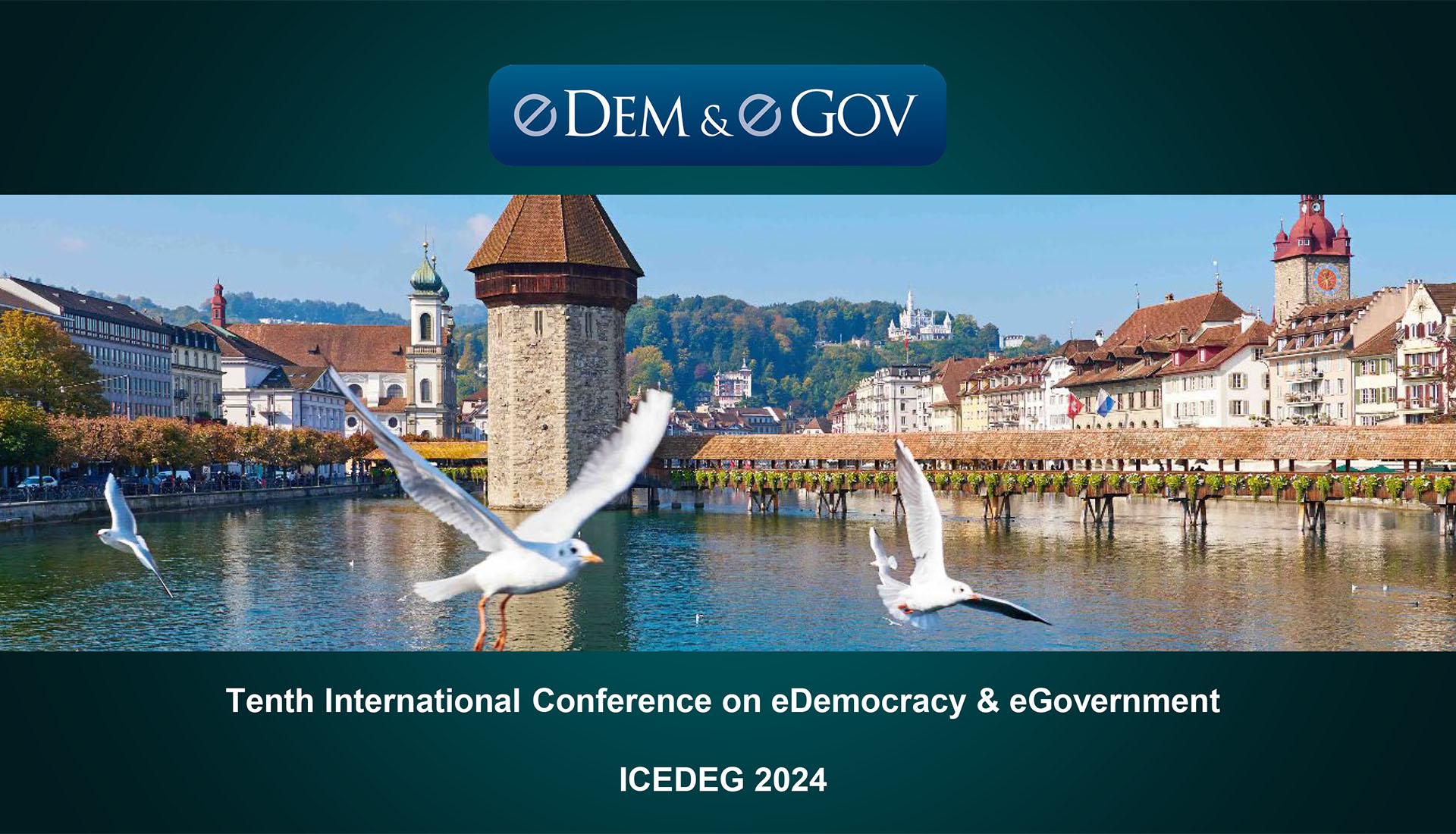The 10th International Conference on e-Democracy & e-Government (ICEDEG) takes place at the Lucerne University of Applied Sciences and Arts
The International Conference on e-Democracy & e-Government (ICEDEG) 2024 addresses the main issues of web-based knowledge management for society and science. Representatives of the governments, international organizations, and universities of Latin America were called to develop a vision for eCollaboration, eDemocracy, and eGovernment. The main objective is to discuss the region's transition to an information and knowledge society that will accelerate and enhance regional economic, social, cultural, and technological development and exchange. Researchers from the IKM also present their contributions at the conference.

Luis and José, can you describe the research project you are presenting at ICEDEG 2024?
User Characterization Strategies in GDPR-Compliant Environments: Beekeeper AG Case Study
Recommendation systems often use pseudonymized personal data, which means that the names of individuals in their database can only be linked to their information using a separate key stored elsewhere. Personalization vendors are subject to the General Data Protection Regulation (GDPR) as they process personal data. As a result, they must comply with all relevant GDPR provisions with their clients.
This study introduces a novel approach to user characterization in GDPR-compliant environments. The aim is to model users beyond the conventional profiling methods employed in social networks. Under the GDPR guidelines, user characterization must comply with strict consent, data minimization, and transparency regulations. This leads to a reduction in the use of personal data, which in turn affects the depth of user profiles for recommender systems (RSs). Our approach involves a hybrid RS that leverages user interactions on a platform while keeping the content of the posts inaccessible.
We use behavioral analysis techniques to ensure user privacy while delivering high-quality recommendations. Our initial findings indicate that while the accuracy of our GDPR-compliant RS is somewhat lower than that of traditional systems, it performs well, especially when there is a substantial volume of user interactions that mitigate the cold start problem. On average, more than 30 interactions are sufficient for compelling predictions. Our methodology enhances user privacy and trust, meets legal standards, and promotes ethical data handling practices.
José, what are you looking forward to at this year’s Conference?
I am excited to explore new ideas in this area of research and to take advantage of the valuable networking opportunities the conference offers.
Luis, you are involved in the organising committee and as program chair. What are you looking forward to?
I am interested in meeting the ICEDEG community, leading researchers, industry experts, and other data enthusiasts. I am also interested in attending presentations on research papers, workshops, and opportunities to network and exchange ideas.
Furthermore I am looking forward to presenting another research project:
Theoretical Framework of Digital Ethics Concerns for Public Services: Electronic Voting Use Case
Digital ethics has become increasingly important in our society due to technology’s profound impact on our lives. As we integrate digital technologies into all aspects of life, it’s crucial to understand their ethical implications. This paper reviews studies on digital ethics to identify ethical concerns in public services and introduces a theoretical digital framework to address these issues. An automated algorithm simplifies the review process, and the literature review and a workshop on digital ethics were instrumental in shaping the framework.
This paper evaluates digital ethics concerns in the context of electronic voting (e-voting) provided by Swiss Post, which is owned by the Swiss Confederation and offers various public services such as e-voting, digital health, e-government, and banking. The workshop brought together experts to identify ethical concerns related to the e-voting use case, with the results analyzed numerically. Insights from this workshop contributed to the development of the inaugural Swiss Digital Ethics Compass. The results of this work will update the academic community on recent developments and emphasize the importance of digital ethics, particularly in sensitive public services like e-voting. This paper aims to foster further explorations and discussions, emphasizing the profound implications of ethical considerations in our technologically driven world. Future work will include analyzing the impact of digital ethics on other public services.
Bruno and Gordon, can you describe the research project you are presenting at ICEDEG 2024?
Political Decision-Making in a Digital Context at the Crossroads Between Reflective Equilibrium and Discourse Ethics
Both e-democracy and e-government face issues concerned with encouraging participation, avoiding manipulation through the malign use of technology and the need to avoid becoming functionally remote. In this philosophically based analysis, a combination of reflective equilibrium, most associated with John Rawls, and discourse ethics, most associated with Jürgen Habermas, is seen as offering answers to these issues by providing a framework and process for the electronic public forum, as also a method for moral justification in public decision-making.
What are you looking forward to at this year’s Conference?
We are looking forward to discussing ethical aspects of AI-supported decision-making with experts from the technical field. We find this particularly relevant because the Conference is about e-democracy and e-government.







Kommentare
0 Kommentare
Danke für Ihren Kommentar, wir prüfen dies gerne.